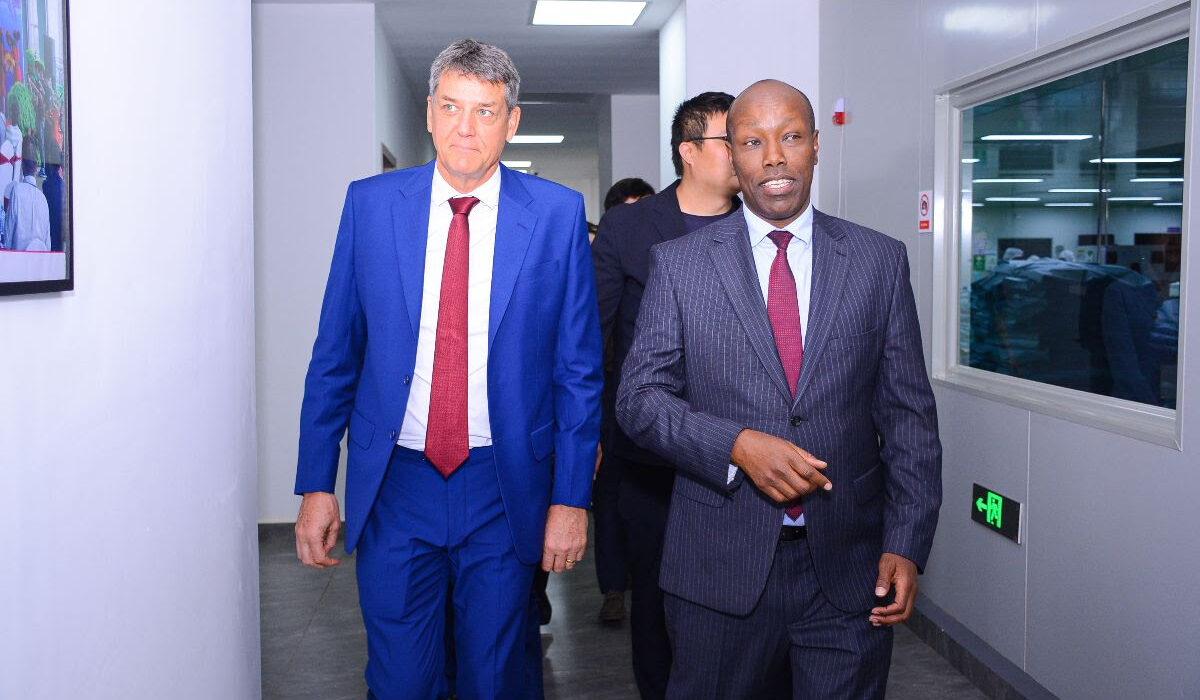Kenya is reaffirming its commitment to attracting foreign direct investment (FDI) through the Special Economic Zones (SEZs) framework, with Tatu City emerging as a flagship example. On Monday, Cabinet Secretary for Investments, Trade, and Industry, Hon. Lee Kinyanjui, paid a high-level visit to the 5,000-acre mixed-use SEZ located just outside Nairobi, signalling renewed government focus on investment-driven urban development and policy reform.
Tatu City is the largest operational SEZ in Kenya and one of the most advanced in East Africa, already hosting over 100 local and international businesses, including global names like Heineken, NCBA, Emirates Logistics, Davis & Shirtliff, and CCI Global.
CS Kinyanjui praised Tatu City’s model as “the best example of a functioning SEZ in the country,” stating that the government is committed to overhauling investment policy to align with the evolving demands of global investors.
“With shifting global economic geopolitics, Kenya is increasingly becoming an investment destination for international companies,” said Kinyanjui. “SEZs like Tatu City offer plug-and-play opportunities that drastically reduce friction for new entrants. We are ready to implement reforms to make Kenya’s business environment even more competitive.”
The Cabinet Secretary toured multiple components of the development, including:
- Tatu Industrial Park, where over 100 firms are operational or under development
- Tatu Central, the city’s commercial and civic hub
- Kijani Ridge, a fully serviced, high-end residential community
Unlike many legacy urban centres, Tatu City is built on mixed-use urbanism, integrating living, working, and learning spaces to reduce congestion and enhance sustainability.
“We support Tatu City’s mixed-use approach,” Kinyanjui noted. “The cities of the future must be integrated, smart, and sustainable—and this development reflects that vision.”
Tatu City SEZ provides a globally competitive incentives package that includes:
- 10% corporate tax for the first 10 years (15% for the next 10)
- VAT zero-rating on all goods and services purchased locally
- Exemptions from import duty and stamp duty
These incentives position Kenya alongside other African jurisdictions aggressively courting FDI. For multinational firms seeking regional hubs, SEZs like Tatu City significantly reduce operational barriers.
Stephen Jennings, Founder and CEO of Rendeavour, the developer behind Tatu City, emphasized the importance of public-private engagement in driving SEZ success.
“Africa is now firmly on the investment map. To ensure Kenya stands out, we need policy clarity, infrastructure development, and investor confidence,” Jennings said. “This visit represents progress in fostering collaboration between government and private sector actors.”
The delegation included senior officials such as:
- Abubakar Hassan Abubakar, Principal Secretary, Investment Promotion
- John Mwendwa, CEO, Kenya Investment Authority
- Fred Muteti, Chair, Special Economic Zones Authority
- Kenneth Chelule, CEO, SEZ Authority
Their presence signaled not just ceremonial interest but a deeper commitment to fine-tuning Kenya’s SEZ framework as an engine of industrialization and economic diversification.
Now welcoming over 25,000 people daily, Tatu City is not just a business park but an urban ecosystem. It is home to educational institutions, logistics hubs, residential estates, and growing commercial districts.
Among its diverse tenants are:
- Dormans (coffee processing)
- Naivas (retail)
- FullCare (medical supplies)
- Novis (pharmaceuticals)
- ADvTECH (education)
- Cold Solutions (cold chain logistics)
Kenya’s SEZ strategy is central to its Vision 2030 and Bottom-Up Economic Transformation Agenda (BETA). With pressure to create jobs, increase exports, and reduce the cost of doing business, effective SEZs are seen as a practical lever for structural change.
Hon. Kinyanjui’s endorsement of Tatu City suggests that the government is not only embracing SEZs in rhetoric, but also in execution—especially if backed by regulatory and tax reforms that make Kenya regionally competitive.
As geopolitical shifts drive capital towards stable, reform-ready frontier markets, Kenya’s ability to offer investor-ready zones like Tatu City could become a defining edge in the African FDI race.





